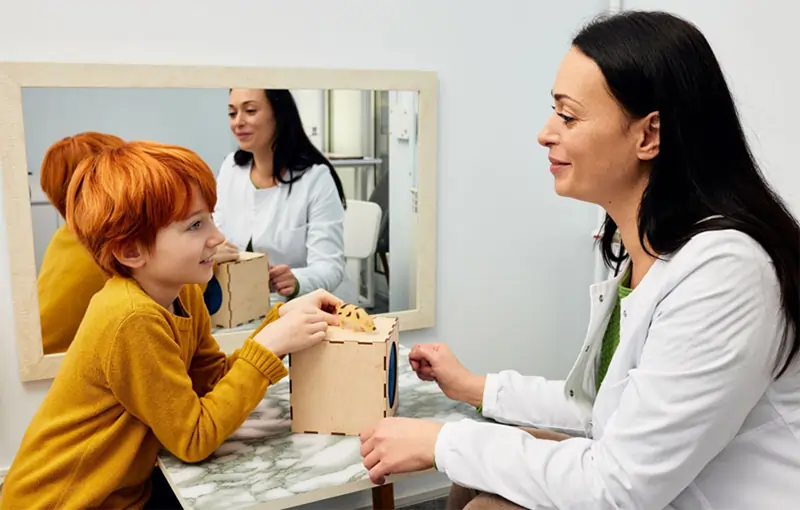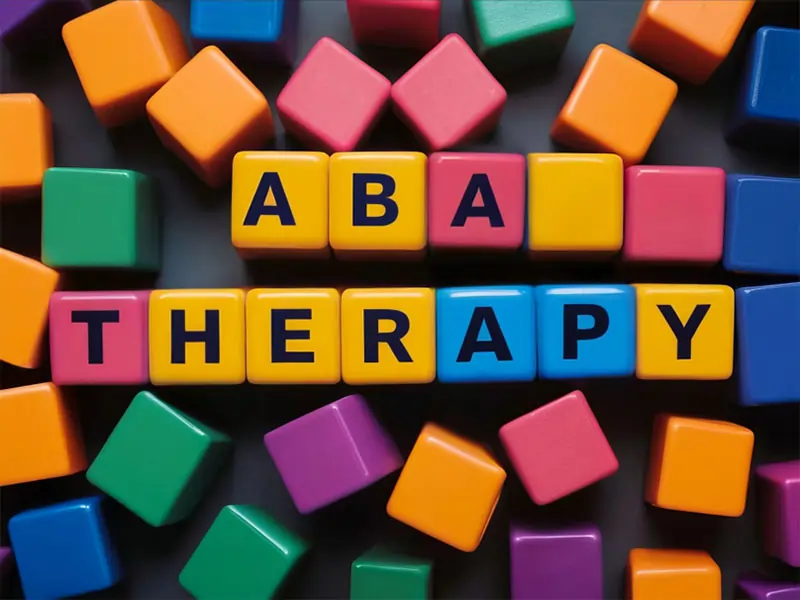How to Prepare for ABA Therapy
ABA therapy is the most well-established treatment for children with autism spectrum disorder (ASD) or other developmental disabilities, and it focuses on improving specific behaviors that might include social skills, communication, and academic performance.
However, what is also critical before initiating ABA therapy is the ABA assessment. It determines what is specific for the child with regards to their needs. An evaluation will be important for building a plan that is geared towards the strength and challenges of the child. Proper preparation for such an assessment can make all the difference in terms of its effectiveness and overall success of the therapy.
Here’s how you can prepare your child best for their ABA therapy assessment:
Understand the Purpose of the ABA Assessment
The ABA assessment helps in laying down a specific plan for the individualized therapy plan. It aims at assessing the developmental level of the child. The main objectives include highlighting the strengths and areas of concern for the child. It provides measurable goals for the therapy session.
The rating usually involves direct observation of the child’s behavior, interaction with caregivers, and structured tasks aimed at determining their skills in different spheres, including communication, motor function, and social interaction. One can explain it to the child in simple words so that one would not be able to have the same level of anxiety or pressure within the child.
Lastly, while preparing, you might want to show procedures in the assessment of an ABA assessment, so you know better the process and what’s expected of both you and your child as part of it.
Communicate With Your Child About the Assessment
You will hence need to clear and subtle communication regarding what the ABA assessment is, explaining it in terms that your child can easily understand, while depending on the age and ability of the child. It is also important not to expose them too much, but enough for them to be well-prepared.
For the younger children, keep it more simple. You could say something like: “We’re going to visit some people who will play games and ask you questions to help us know what you like doing so we can have ideas about how to support you in your learning.” For the older ones, you can explain that they are going to work with specialists who will actually support their skills and development in terms of learning.
Create a Comfortable Environment
A familiar, comfortable environment may help alleviate the anxiety a child is feeling. If you are going to take the assessment in a clinic or office, consider taking your child past the location before the day of the assessment. Then that space is not so ominous and unwelcoming for them to sit in on the assessment day. If you are going to conduct the assessment at home, prepare the house for the assessment by decreasing distractions and making the environment calm and quiet.
First, you should prepare your child for the test through keeping them on their daily routines even in the days before the evaluation. You should ensure that he or she is well-rested and has his or her usual meals before going for the appointment. Routine can also give children a sense of security, particularly children with ASD as well as giving him or her immunity against some stress which might be unnecessary.
Prepare Your Child for New People and Situations
One of the challenges children with ASD or developmental delays may face is interacting with new people. Your child will surely work with some clinicians and therapists whom he has never seen his whole life, especially if a proper assessment in an ABA is being conducted. Preparing your child for such novel interactions will be vital in helping him settle within the new environment.
Above all, role playing can be a good tool to prepare the child. You can pretend to be the ABA therapist and play out what will happen when taking the assessment by asking them simple questions or setting them up with certain tasks to complete. By doing so, the real testing may not seem as alien or intimating to the child. You also watch for responses while changing in your strategy where necessary.
Support Your Child During the ABA Assessment
On the actual day of the ABA assessment, you must assure your child that he is safe and okay. Calmness and positivity are emotions that should be portrayed to a child on such a day. Children take cues from their caregivers so that if you remain calm, your child is likely to feel secure and at ease during the process.
Some children would be difficult to keep focused or interested in them for a long time, especially if there is a structured assessment that will take much of their time. If there is a possibility that the evaluation will become lengthy, solicit advice from the therapist or clinician to schedule breaks so that your child will not be overwhelmed by the situation. This way, he could reset and recharge himself again before continuing the assessment process.
Gather Important Information Before the Assessment
Preparations for the ABA assessment include gathering all information the therapist may need. For example, this may include former assessments, diagnostic reports, or histories of his or her medical records. This information allows the therapist to understand the background better and the needs your child may need to ensure proper and accurate assessment.
Prepare to talk about your child’s developmental history, be it related to milestones or behaviors and areas of concern. The ABA therapist may have an interest in routine, social life, and responses in different situations that your child goes through.
Establish a Collaborative Relationship with the Therapist

Setting open communication with a collaborative relationship with the ABA therapy helps assuring the general success of the process. This being an assessment process, it is likely that the ABA therapist will request your observations as well as what you can share especially when it comes to your child’s behavior patterns at home, school, or other settings. Your experiences and valuable insights may also give a more complete picture of the needs and target behaviors of the child that may help change the approach of the therapist. Conclusion
Final Thoughts
Preparing for the ABA Therapy Assessment While preparing a child for attending an ABA therapy assessment, careful preparation, crystal-clear communication, and positive planning are set forth. An ABA therapy evaluation is necessary to know better what your child may need or may not need, and individualized treatment plans that would help him or her grow in the most effective way. Thus, all the above information will help one prepare for a good and successful beginning of ABA therapy.

